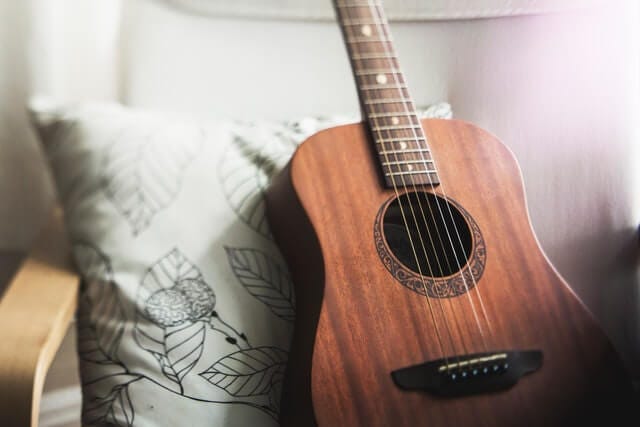Are you a beginner or not?
Guitar Noises #30: April 13, 2022
Thank you for subscribing to Guitar Noises! There are no affiliate links or sales pitches here. If you have friends who want to play guitar why not share this with them?
A strange and surprising thing people tell me sometimes is that they’ve been a beginner guitar player for over 20 years. I have to wonder if they’re being too hard on themselves or do they really play like a noob.
In truth, they may not be beginners at all. If they’ve been around guitars that long they probably know a lot more than they realize. They don’t need more answers. They need encouragement.
My hunch is that most readers of this newsletter span the divide between beginner and intermediate. Some of you may consider yourselves life-long beginners. Perhaps you’re looking for some insight or push that steers you in the right direction. I hope I’ve got that right. Let me know in the comments or an email afterwards if I’m way off.
I remember an old forum post where someone said “If you wonder whether you’re a beginner or not, then you’re not. Beginners know it.” The intermediate level is where the real learning begins.
So where does beginner end and intermediate begin?
Can you play songs all the way through without stopping or messing up the rhythm? Can you do a steady Down Down-Up Up-Down-Up strumming pattern and change chords smoothly? How about over a chord progression like G-D-Em-C? When you’re learning a new song do you pick it up quicker than when you were first starting out?
If it’s a yes to all of these you can relax. You’re far enough along to stop calling yourself a beginner. Your time on guitar so far has been well spent.
There is a lot of overlap between beginner and intermediate and separating the two is pretty subjective. I feel like we need a list of what exactly an intermediate should know.
The Intermediate Guitarist Checklist
Using a scoring system to rate ourselves and others is a terrible idea. I don’t want to make a bullet list of what makes someone an intermediate.
Fortunately, Nate Savage has put together an excellent checklist of 16 things you probably need to know to fit the intermediate label. It’s far from being a discouraging scoring system. In fact, after watching the video you have to check out some of the comments below it. It’s awesome to see that many people say they feel good about their playing after watching this video.
Nate’s list (also summarized here) makes a good to-do list if you’re not quite there yet. If you can’t do some of the things on the list the only way is up, and that should still feel pretty good.
How to become an intermediate
Most of your growth comes down to practice. There is no set amount of hours that will get you to the next level. It’s how you practice and what you practice.
Brian from Active Melody recently sent this out in an email and it really resonates:
“Always have a goal in mind when you start your "practice" time. If you're learning a scale, you should know WHY you're doing it. Never practice something, "just because", you need to know how it relates. Oh, and and if you aren't learning something new, you're just in "maintenance mode". Learning something new feels like work and may not be as fun, but is extremely important.”
People judge themselves harshly. Someone else might be a better judge of your progress. If you have a phone it’s easy to record yourself playing. You can get feedback by sharing it anonymously online. If you don’t want to show anyone, simply watching yourself play is good for spotting areas that need work. Don’t rule out finding a teacher. Even an online instructor once a month can point out some small changes that could lead to big improvements.
Your talent is less important than your time. If you are willing to put in work, even just 20 minutes a day, you will see improvement. Progress may appear slow, but looking back on where you were months ago is when you notice improvements. If you’ve been writing down goals in a notebook don’t tear out the pages. Being able to point to things you’ve scratched out is a good feeling.
In recent weeks I’ve written some lessons that are aimed at helping beginners level up.
What do the dots on a guitar really mean? is about learning the fretboard.
The Greatest Story Ever Told is One Four Five explains three chord songs and one of the most common chord progressions,
Movable Chord Shapes shows you how to find chords quickly without relying on tabs or sheet music.
Quick Patterns for Finding Chords explains how to find even more of the chords you’ll need to play most songs.
Must Know Chord Progressions goes over the most common chord progressions you’re likely to encounter.
These lessons form one of many possible blueprints to move from a beginner to intermediate level.
Recently I’ve been working through several premium guitar courses people have asked me about. There is one in particular that I think will help beginners level up. I plan to write a full review in the next newsletter.
See you then.



I've been playing for longer than I care to admit. I'm trying to be a beginner.
https://en.wikipedia.org/wiki/Shoshin